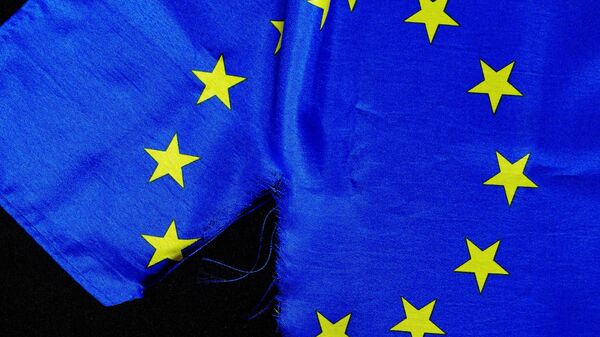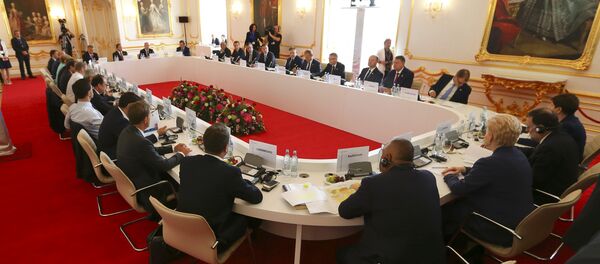Friday’s EU summit in the Slovakian capital was the first meeting of such a scale held without a representative from the UK.
Speaking at a press conference following the summit, President of the European Council Donald Tusk named the areas where the EU leaders reached agreement: border security, counter-terrorism and the need to "bring back control of globalization.".
“The leaders of the European Union are trying to rally their troops behind their renewed program for the EU without the UK and set the tone for what they want to achieve in the future. This is a union in difficulties and in turmoil. There are internal divisions and the migration issue, which are important to their efforts to unify at least on some milestones,” Professor Bergmann told Sputnik.
Some of the leaders speaking at the meeting, above all Greek Prime Minister Alexis Tsipras, pointed up the severe problems now being faced by the European Union. He warned that if nothing is done right now other EU countries could eventually follow Britain’s lead and leave the Union.
Eirikur Bergmann admitted the existence of dividing lines between southern European countries, like Italy and Greece, and the “more hardline” eastern European states, which want to limit the admission of migrants coming in from the Middle East and North Africa.
“There are all sorts of dividing lines the EU leaders need to mend,” he added.
When asked about the joint policies that are going to be to be worked out next year and how they could change the situation, he said that it was really impossible to say how the EU will evolve in the coming years.
“The EU is an apparatus that usually does not take big steps at a particular time. I don’t think that the EU leaders have an ambition to set out a grand scheme for the future. Their aim is not to strengthen the European Union but rather to calm and outline a clear path to move along,” Professor Bergmann said in conclusion.
The leaders of 27 EU member states were meeting on Friday in the Slovakian capital Bratislava for an informal summit to push forward reforms within the bloc regarding the protection of external borders, the fight against terrorism, the migrant crisis and various economic and social issues. The summit was the first meeting of EU leaders without the United Kingdom in 43 years following Britain's decision to leave the bloc.



